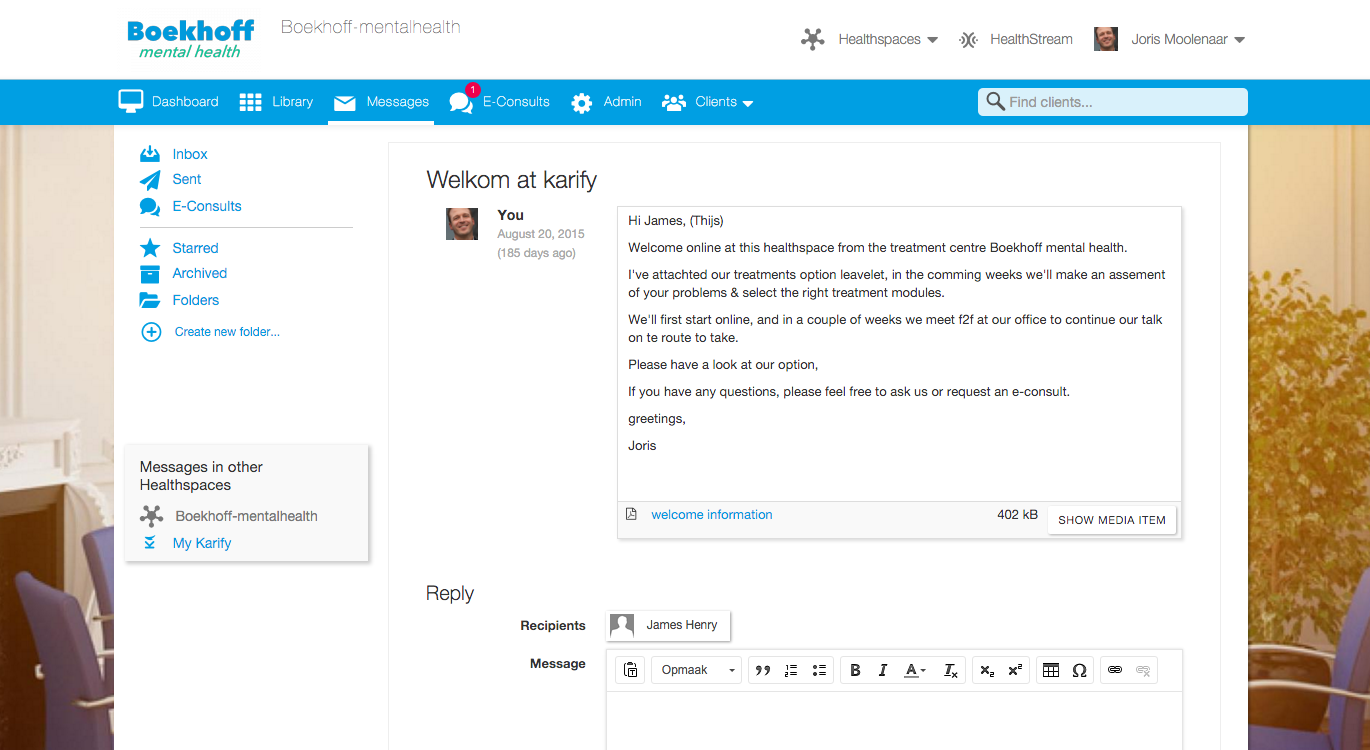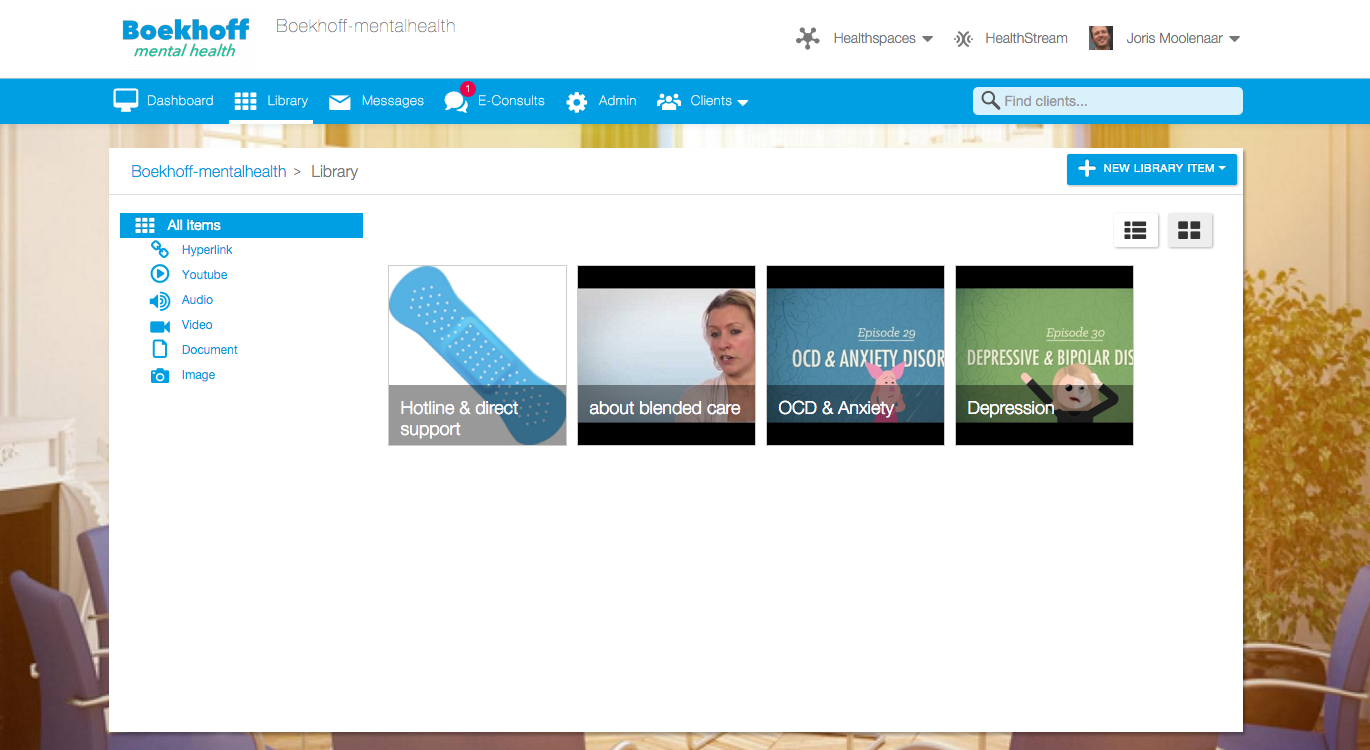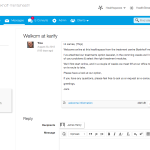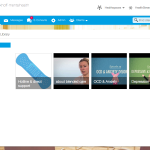Anxiety and panic
Social Anxiety
This module is meant for patients who suffer from social anxiety in a way that their functioning is impaired. Offer patients an insight into the origin of their anxiety symptoms. Explore your patient’s social network and social skills together with him, and look for possibilities for consolidation. Additionally, attention can be paid to avoidance behaviorLet your patient discover what he can do to reduce his social anxiety himself, using this module.
 Henriëtta Dijkstra
Henriëtta DijkstraTreatment Manager
DisordersSocial AnxietyCare typesTreatment
All prices are including vat
- Description
- Traits
- Contents
This module is meant for patients who suffer from social anxiety in a way that their functioning is impaired. Offer patients an insight into the origin of their anxiety symptoms. Explore your patient’s social network and social skills together with him, and look for possibilities for consolidation. Additionally, attention can be paid to avoidance behavior of your patient. Using different exercises, your patient will learn how to overcome avoidance behavior.
- Set up in 5 phases
- Based on cognitive behavioral therapy
- Usable both online and blended
- Alternate with face-to-face contacts
- Provide online feedback
- One-on-one contact via secure messages
- Can be used to treat an unlimited number of patients
The module Social Anxiety consists of 5 phases:
- Phase 1: Understanding my problems
The patient describes his complaints, personal situation and goals. Furthermore, information is offered to the patient about the origin and consequences of social anxiety. - Phase 2: Experiencing
The patient learns to divide his attention through task concentration. He will also start with confronting difficult social situations that he normally avoids.
- Phase 3: Changing your thoughts
Recognizing and changing negative thought patterns is an important part of this treatment. This is done on the basis of a thought record and registration of successes. - Phase 4: Social situations and stress
In this phase, attention is paid to the social network and social skills of the patient. After this, the patient maps the situations that he tends to avoid. He will confront these particular situations. Also, different relaxation exercises are offered to help reduce feelings of anxiety in difficult situations.





